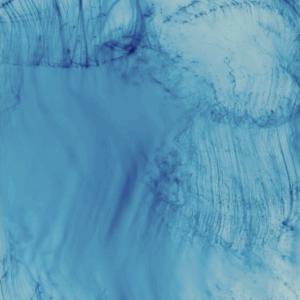JTF (just the facts): Published in 2024 by Fw:Books (here). Softcover (24 x 28 cm), 108 pages, with 65 color and black-and-white photographs. Includes an essay by the artist. Design by Hans Gremmen. In an edition of 500 copies. (Cover and spread shots below.)
Comments/Context: In her artistic practice, the Dutch artist Simone Engelen says that she explores tranquility and ways to quiet the mind. The time she spent living in a Japanese Buddhist monastery has influenced her work, which aims to “capture and evoke stillness, inviting the viewer to pause and engage with the essence of being.” Her work also deals with topics related to the female body, and the psychological influences of sexuality, power relations, and control.
Earlier this year, Engelen released a photobook dealing with inner trauma, a sexual assault that happened during her high school year abroad in California. The event happened years ago, and forced Engelen to “develop coping mechanisms such as addiction and control issues,” affecting her interaction with people and her desire for intimacy. In 2022, she decided to travel back to the United States with her mother to search for closure. She says that her camera turned into a tool that gave her the distance she needed to engage in conversations that had long been avoided. Titled 27 Drafts, the photobook shares this story. Its title refers to the numerous times that Engelen has tried to write her thoughts down reflecting on the trauma she had experienced. The book was shortlisted for the 2024 Paris Photo – Aperture Foundation Award.
27 Drafts is a relatively slim softcover book. Lines of handwritten text, written over and over, blanket the cover, embossed in black font, referencing the title. Although the cover is illegible as a whole, we can feel the physicality of the letters, which serve as a powerful introduction to the book. Blue stitches at the spine, matching the blue in photographs, are another fitting design element. Inside, the images are mostly printed full bleed on black paper, often going across the gutter. There are no page numbers or captions, creating a continuous visual flow. An essay by the artist’s friend appears on a separate folded piece of paper, placed in the center of the book. Overall, 27 Drafts has the feel of a journal or scrapbook, matching well its content and intentions.
Printed on black paper, Engelen’s photographs feel raw, evoking both a nightmare and an investigation, and through these pictures, she visually expresses her inner battle. A small photograph of the artist in a graduation cap is placed on a black page opening the book, setting the visual narrative in time. We then follow Engelen as she goes on her redemptive road trip. In one image, the interior of a car provides a dark frame for a view out of the front window toward a mountain covered in snow standing against the blue background of the sky, adding a surreal Twin Peaks aesthetic. In the following pages, there are traveling shots of serene landscapes, houses, two coffee cups inside the car, and slushy roads, as well as images of sparkles of light and water against a dark background. As we move through the book, there are several photographs of crumpled bed sheets, and in one of them, a leg with multiple bruises appears from under the duvet. Seen together, they signal hard times and ongoing emotional distress caused by the assault.
One section of the book mixes archival images from earlier years, inverting the images, creating collages, and mixing them with the excerpts from Engelen’s diary and what looks like found imagery. The words “fear” and “pain” appear over an image of matchbook with an illustration of repeated nude silhouettes; the words “anger” and “love” are placed above and below. One of the key images in the photobook is a snapshot of two guys at a party getting close with a girl, their faces cut out with white boxes. The first time the image appears in black-and-white, taking up the entire spread, and it appears again later, smaller, in sepia tone, against dark black background, with a handwritten line underneath reading “This is the picture of the guys.” Removing their personalities from the narrative, in a way, takes away the revenge element, and also makes Engelen’s story more universal.
A letter by Anouk Spruit, a friend of the artist and also an attachment and trauma therapist, is printed on a single piece of paper and inserted in the book. She writes about the need for the support of friends and family after an incident of sexual abuse, and how the lack of it leads to a traumatic experience and devastating effects. Often society focuses on blaming victims, instead of emphasizing that touching others without their consent should never be allowed.
Obviously, taking this trip meant bringing back memories long suppressed and avoided, but going on a trip with her mother and taking her camera as a tool helped Engelen to figure out what had happened and how it had shaped her. Spruit also notes an important cognitive shift from “it was my fault” to “this should never have happened to me.”
Elements of Engelen’s photobook bring to mind other recent projects that turn to photography to overcome trauma, to deal with unanswered questions, and to start the healing process. PASACO, 1996 by Luis Corzo (reviewed here) re-interprets the events surrounding his own childhood abduction, using dispassionate investigative methods to provide distance from the trauma. Tarrah Krajnak’s book El Jardín de Senderos Que Se Bifurcan (reviewed here) imaginatively re-examines the circumstances of the artist’s own birth and adoption. While different in their formats and execution, these books touch upon the important issue of dealing with traumatic events and personal demons, and use photography to heal and regain balance.
The very last image in the photobook looks like a dirty car window, and the letter E is surrounded by a heart that has been drawn in the dirt and fog. Engelen says that working on the project helped her to “visually articulate this inner battle of dealing with my body, identity and femininity.” It takes plenty of courage for victims of sexual assault to come forward and to speak out, and in this way, 27 Drafts is a deeply courageous photobook, an intimate personal journey from trauma back to healing.
Collector’s POV: Simone Engelen does not appear to have gallery representation at this time. Interested collectors should likely follow up directly with the artist via her website (linked in the sidebar).


























